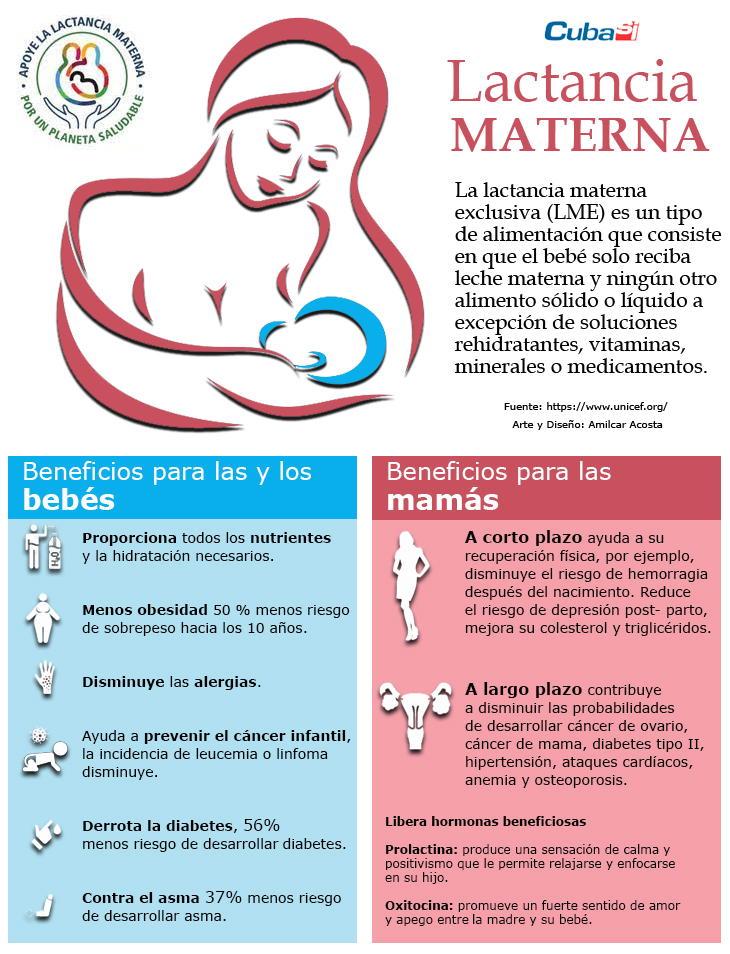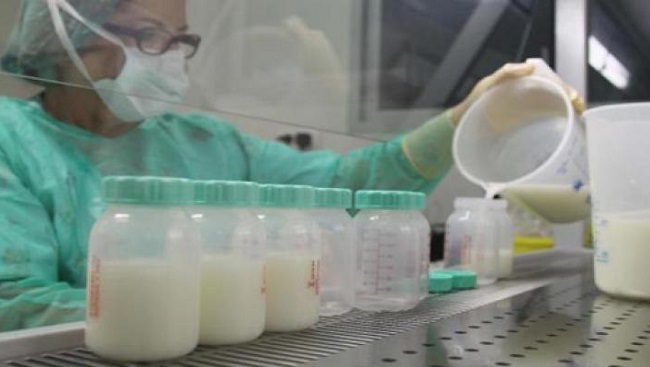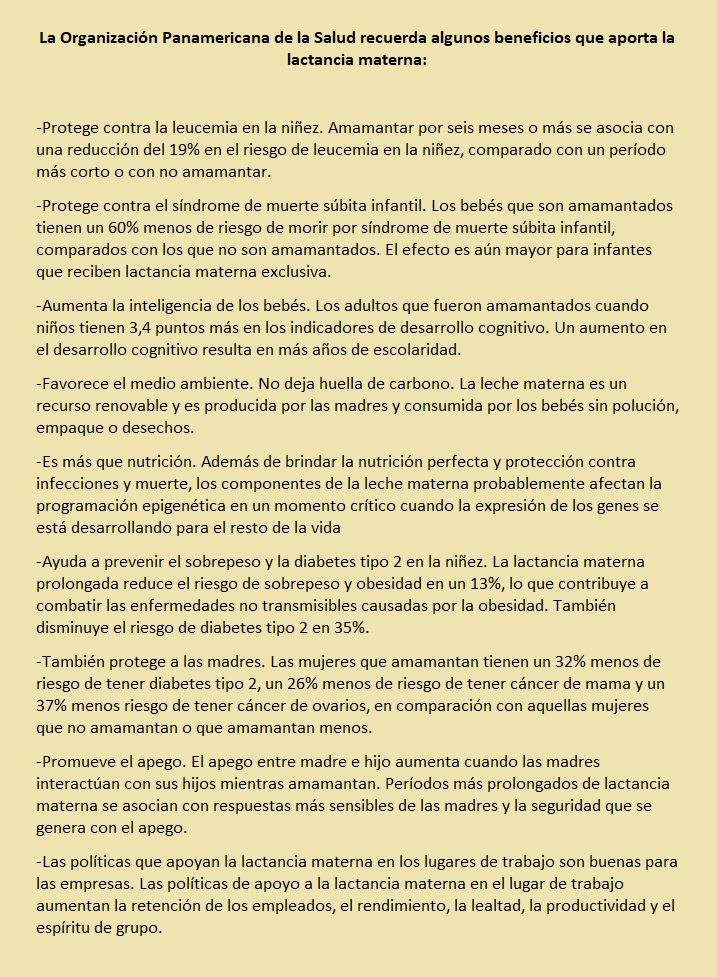
As the “first big vaccine we received” is the first drop of breastmilkas described by the coordinator of Unicef in Cuba, doctor Dagoberto Rivera, commenting on the great importance of this first feeding that the newborn should receive.
When presenting on the Island the World Breastfeeding Week 2022, that already passes from the 1st to the 7th of August, Rivera argued that “It is an act of love, it is the fundamental bond between the mother and the child, it does save lives,” and stressed that such breastfeeding is a right of children and a duty of parents.
Under the slogan “Let’s promote breastfeeding, supporting and educating” this World Week runs in more than 170 countries in order to stimulate this natural diet and thus pay tribute to the health of babies.

According to the Multiple Indicator Cluster Survey (MICS) applied in Cuba in 2019, before covid-19, 92.5% of babies had breastfed on the first day of birth, but during the first hour after birth, 64.1% had done so.
Up to six months of life, 40.9% of the children had been exclusively breastfed, but only 35.3% had continued to be exclusively breastfed after their first birthday, and 19.2% up to two years of age.
Based on these statistics, Dr. Odalys Rodríguez Martínez, official of the Every child survives and prospers Unicef-Cuba program, urged to resume the practice and promotion of this healthy way of eating, also beneficial for mothers, while in the case of children, among its many advantages it helps prevent chronic non-communicable diseases and other morbidities in early life.
“Breastfeeding is the best start to life,” said the specialist.
But for this beginning and later to be successful, the support of the family is needed, as well as the mother’s workplace and health institutions.

Family support is important.

The latter, particularly childcare consultations, are the spaces par excellence to teach the new mother the hows and whys of breastfeeding, to blur myths and anchor truths.
Even though the statistics can and should be better, Dr. Lissette López González, head of the National Pediatric Group of the MINSAP, recalled that during the most difficult moments of COVID-19 transmission on the island for pregnant women or newborns, here the use of breastfeeding as the primary antigen was always appealed to.
Considering the current situation of dengue and other diseases, he recommended continuing breastfeeding in cases that require it.
And even when for certain reasons babies cannot be breastfed by their mothers, there is in Cuba -and also in the world- another alternative so as not to deprive them of that beneficial natural nutrition: breast milk banks.

A breast milk bank in Cuba.
These entities specialize in collecting this vital substance from the volunteering of female donors, in the selection, classification, processing, quality control, storage and distribution of that milk under medical prescription.
It happens that sometimes it becomes difficult for the mother to breastfeed her child when it is born prematurely or with low birth weight, or if the newborn remains in an intensive care unit. For these and other cases, there are 14 breast milk banks in the country, with the support of Unicef, distributed throughout the national territory except Artemisa, Mayabeque and the special municipality of Isla de la Juventud.

Breast milk donors, another beautiful expression of solidarity.
“If there were a new vaccine that prevented 1 million or more child deaths per year, and that was also cheap, safe, administered orally, and did not require a cold chain, it would be a public health policy imperative. Breastfeeding can do this and more,” says PAHO.

Source: PAHO
Breastfeeding in the world
On August 1st, the Executive Director of Unicef, Catherine Russell, and the Director General of the WHO, Dr. Tedros Adhanom Ghebreyesus, issued a joint statement regarding this World Week.

In the widely circulated text, they stressed that “As global crises continue to threaten the health and nutrition of millions of babies, boys and girls, the vital importance of breastfeeding as the best possible start in life is more decisive than ever” .
UNICEF and WHO called on governments to allocate more resources to protect, promote and support breastfeeding policies and programs, especially those aimed at the most vulnerable families living in emergency situations, since this practice constitutes a source of safe, nutritious and accessible food for infants and young children in difficult situations.

These particular cases are emphasized because the emotional distress, physical exhaustion, lack of space and privacy, and poor sanitation experienced by mothers during emergencies mean that many babies are unable to reap the benefits of breastfeeding to survive, the statement said.

Globally, both international organizations report that less than half of newborns receive breast milk in the first hour of life, making them more vulnerable to disease and death. Only 44% of babies are exclusively breastfed during their first six months, a figure that is below the World Health Assembly target of at least 50% by 2025.
“Protecting, promoting and supporting breastfeeding is more important than ever, not only because being the baby’s first natural and sustainable food system protects our planet, but also because we promote the survival, growth and development of millions of infants” , emphasize UNICEF and WHO.
